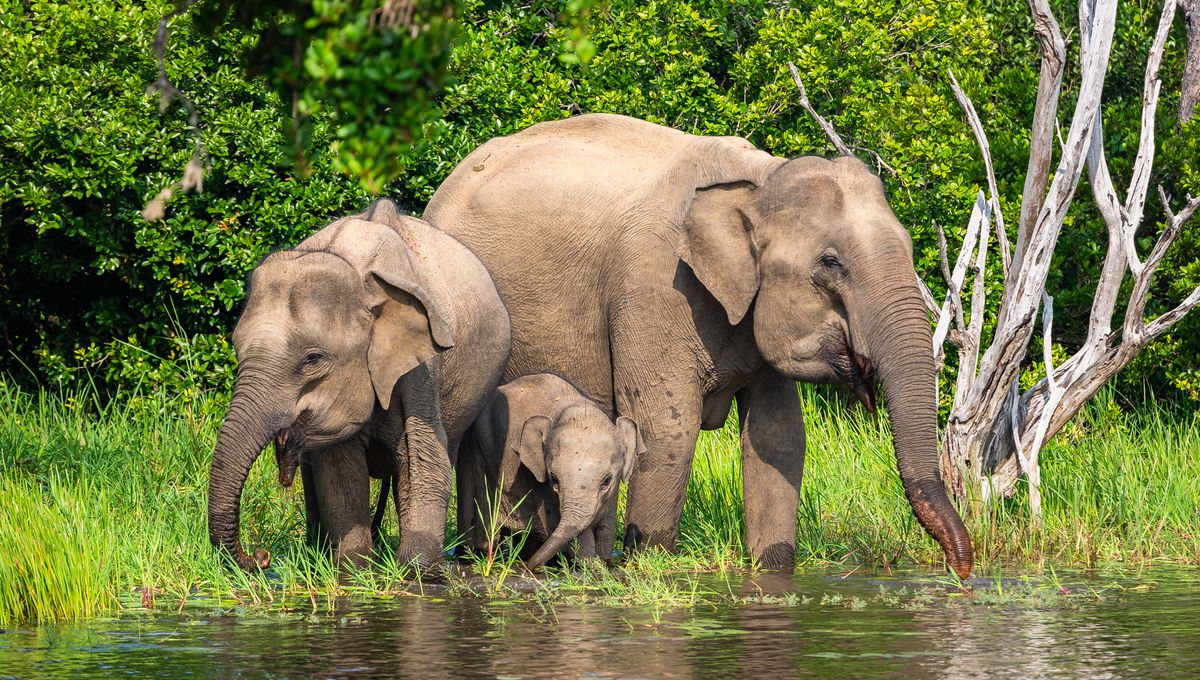
Theoretically, large animals should get cancer more often than small ones, and for decades biologists have been puzzled as to why this didn’t seem to be the case. Indeed, many cancer researchers hoped that the solution to treating cancer in humans might lie in the elephant’s genome. However, a new study claims that line of research is a distraction, because big animals, specifically including elephants, are in fact quite prone to cancers.
ADVERTISEMENT GO AD FREE
The bigger an animal is, the more cells it has in its body and the more times those cells will have divided. Longer average lives also require more cell divisions, and while an animal’s size doesn’t always predict its lifespan, the two tend to go together. Each cell division carries with it the danger of something going wrong, causing a mutation. Most mutations don’t lead to cancer, but enough do that increased divisions ought to be a cancer risk. The observation almost 50 years ago that this wasn’t happening has been named Peto’s paradox after Sir Richard Peto, who first reported it.
Rumors that cancers are rare to nonexistent in species such as sharks and elephants have fueled an extensive mythology, among various specialists as well as the general public. However, a team led by Professor Chris Venditti of the University of Reading conclude the claims are wrong. They compared cancer rates in 263 species, including large ones like elephants and giraffes, and some big reptiles.
A similar study was done last year, and produced mixed findings. On the one hand, that work concluded that cancer rates were higher among bigger animals, contradicting the paradox, but on the other hand the relationship was weak. Moreover, longer gestation times, which tend to be a feature of large animals, were associated with lower cancer rates.
However, science relies on replication, and Venditti’s team used the data collected for that study but performed their own analysis. “Everyone knows the myth that elephants are afraid of mice,” Venditti said in a statement, “but when it comes to cancer risk, mice are the ones who have less to fear. We’ve shown that larger species like elephants do face higher cancer rates – exactly what you’d expect given they have so many more cells that could go wrong.”
Venditti and colleagues distinguished between birds and mammals on the one hand, and amphibians and reptiles on the other. Besides the whole warm-blooded/cold-blooded difference here, the second group can keep growing as they age, rather than stopping on reaching maturity.
In both categories, however, the team claims larger species have higher cancer rates. Specifically, they say; “We found no evidence to suggest that [the Asian elephant] has an exceptionally low prevalence of malignancy despite often being touted as the quintessential example of Peto’s paradox.”
ADVERTISEMENT GO AD FREE
That said, the idea that elephants are immune is not entirely without substance. Their cancer rates might be higher than mice, but they’re similar to animals that weigh about a 10th as much, such as tigers. Clearly our big-nosed friends have a few tricks they can teach us, which the authors think is a feature of species that got big in a relatively short evolutionary burst.
“When species needed to grow larger, they also evolved remarkable defenses against cancer. Elephants shouldn’t fear their size – they developed sophisticated biological tools to keep cancer in check. It’s a beautiful example of how evolution finds solutions to complex challenges,” said Dr Joanna Baker.
The work also identified certain species that are anomalies, getting cancer far more or less frequently than their size alone would suggest. The claim that naked mole rats never get cancer has been disproved, but it’s still remarkably uncommon.
On the other hand, the budgerigar drew the short straw in the cancer stakes, getting it 40 times as often as its small size would suggest, the largest discrepancy in the sample. That’s sad news for those who like to keep the pet, but lead author Dr George Butler of University College London noted it’s identifying the animals that are relatively immune that’s most important.
ADVERTISEMENT GO AD FREE
“Finding which animals are naturally better at fighting off cancer opens exciting new paths for research. By studying these successful species, we can better understand how cancers develop and potentially discover new ways to fight the disease. This could lead to breakthrough treatments in the future,” Butler said.
We already know a few of the tricks certain species use. Elephants have about 20 copies of the TP53 gene, which suppresses tumors, while humans have one, on chromosome 17. The authors also give the example of Rickett’s big-footed bat, which is known to have downregulated many genes associated with cancers in other animals. However, we’ve only scratched the surface of the armory of weapons animals use to defend themselves from their own cells gone awry.
The study is published in Proceedings of the National Academy of Sciences.
Source Link: “Why Don’t Elephants Get Cancer?” Turns Out To Be The Wrong Question